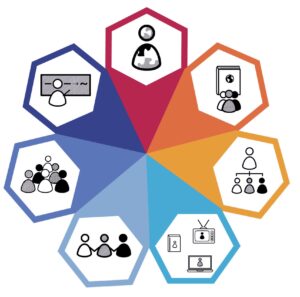Tanenbaum’s Pedagogy
 Tanenbaum’s globally recognized pedagogy, the Seven Principles for Inclusive Education, builds inclusive and respectful classrooms. A valuable resource for any classroom or lesson plan, the Seven Principles increase behaviors of respect and inclusion. They are also the foundation for all of our curricula and teacher training programs many of which are available online. To learn more, contact us at [email protected].
Tanenbaum’s globally recognized pedagogy, the Seven Principles for Inclusive Education, builds inclusive and respectful classrooms. A valuable resource for any classroom or lesson plan, the Seven Principles increase behaviors of respect and inclusion. They are also the foundation for all of our curricula and teacher training programs many of which are available online. To learn more, contact us at [email protected].
- Click here to download the comprehensive version of Seven Principles for Inclusive Education
- Click here to download the comprehensive version of Seven Principles for Inclusive Education in Spanish*
- Click here for an illustrated 2-page summary
- Click here for an illustrated 2-page summary in Spanish*
Additional Resources:
Tanenbaum’s Six Behavioral Learning Outcomes identify key competencies of respectful behavior. These academic, social, and emotional skills are the result of implementing the Seven Principles of Inclusive Education in all of our curricula, trainings, and educational resources. Learn more about what respectful conduct looks like and how to support it in your classroom.







